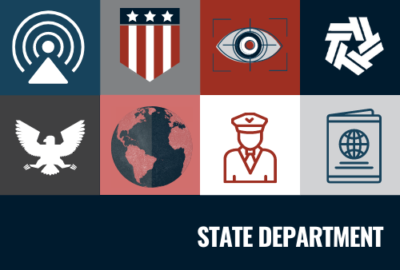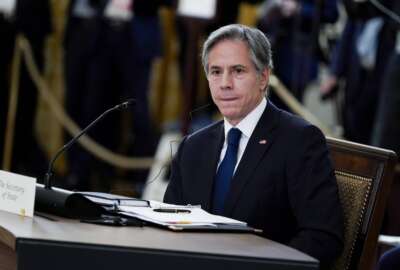

The State Department is ramping up its data for diplomacy efforts by naming chief data officers to each of its component bureaus and offices.
The State Department is ramping up its data for diplomacy efforts by naming chief data officers to each of its component bureaus and offices.
The addition of bureau-level CDOs is the latest effort under the department’s efforts to bolster its data analytics capabilities under its 2021 enterprise data strategy.
Robin McWhorter, the chief of enterprise data management for the State Department’s Center for Analytics, said the bureau chief data officer initiative is key to advancing the department’s data maturity efforts.

“They can work toward delivering evidence-based analysis in support of bureau missions and connecting otherwise disparate bureau data analytic and data management efforts, and data governance efforts as well,” McWhorter said during the CDO Council’s latest public meeting in February.
The department last year also hired more than 50 data scientists, and continues to build up its workforce of data experts.
The Bureau of Diplomatic Security, which has the largest global footprint of any U.S. federal law enforcement organization, is looking to make better use of its data to better protect department personnel and facilities.
Diplomatic Security CDO Rachel Wang said she sees data analytics and emerging technology capabilities as the “biggest growth opportunity” for the bureau.
“Without data sharing, without the interoperability of our data systems, you can’t do analytics or more advanced work. And you can’t change the culture, because people won’t realize the value of data without that data sharing and interoperability,” Wang said on the latest episode of All About Data.
Diplomatic Security has more than 47,000 employees around the world, and operates out of 270 U.S. diplomatic posts in over 170 countries, as well as 32 U.S. cities.
Among its duties, the bureau protects embassies and consulates, as well as the department’s information systems and manages the security clearance and certification process. It also provides protective operations for the Secretary of State and foreign dignitaries arriving in the U.S.
“Due to this rather dynamic mission, and the large global workforce, and the information systems that support all of that work and the mission support, we really have identified there’s a need to ensure that data isn’t siloed between the various Diplomatic Security directorates,” Wang said.
To support a growing cadre of CDOs and data scientists, the State Department is also building out a central data analytics platform.
“Think of it like a data SWAT team that can quickly be mobilized and tackle some cross-cutting issues for the organization,” Wang said. “Currently, people know that relying on data is important, and will do their best to pull together this data. However, I think building a central analytics capability … for the organization will be super important.”
More than 90 offices are already using the central data analytics platform Data State, which the department launched once it began ramping up its hiring of data scientists.
“We expect that as more data scientists get hired into the department that this number will continue growing. And, of course, the department has made an effort to grow and mature this capability,” Wang said.
Prior to serving as Diplomatic Security’s CDO, Wang worked as the Center for Analytics’ liaison to the Coordinator of Afghan Relocation Efforts.
At the height of these operations, Wang said the team worked 24 hours a day, seven days a week across three shifts to support Consular Affairs efforts and the Defense Department’s Special Ops planning.
“During that time, data was really used for shaping operational decisions. And like finding ways to be more efficient with the tools that we had, the experience really demonstrated that having data scientists in the room makes a difference in decision-making,” she said.
Wang said Diplomatic Security is looking at data analytics capabilities to improve its data analytics capabilities, and “better inform which areas might require additional personnel or personnel with different skill sets.” The bureau is also investing in geospatial analysis capabilities.
“We’re always answering, who are we protecting, what does the operating environment look like? Are people or assets at risk? And if so, how do we mitigate with existing people or assets?” Wang said.
Wang said bureau-level CDOs will tackle more granular data challenges within their own domains, but also see an opportunity for collaboration on cross-cutting work, such as the department’s preparations for the U.N. General Assembly and the department’s work monitoring foreign elections.
“Having the bureau chief data officer program, you’ll get a lot more engagement and support in the data realm for those department-level priorities,” Wang said.
Copyright © 2025 Federal News Network. All rights reserved. This website is not intended for users located within the European Economic Area.
Jory Heckman is a reporter at Federal News Network covering U.S. Postal Service, IRS, big data and technology issues.
Follow @jheckmanWFED


